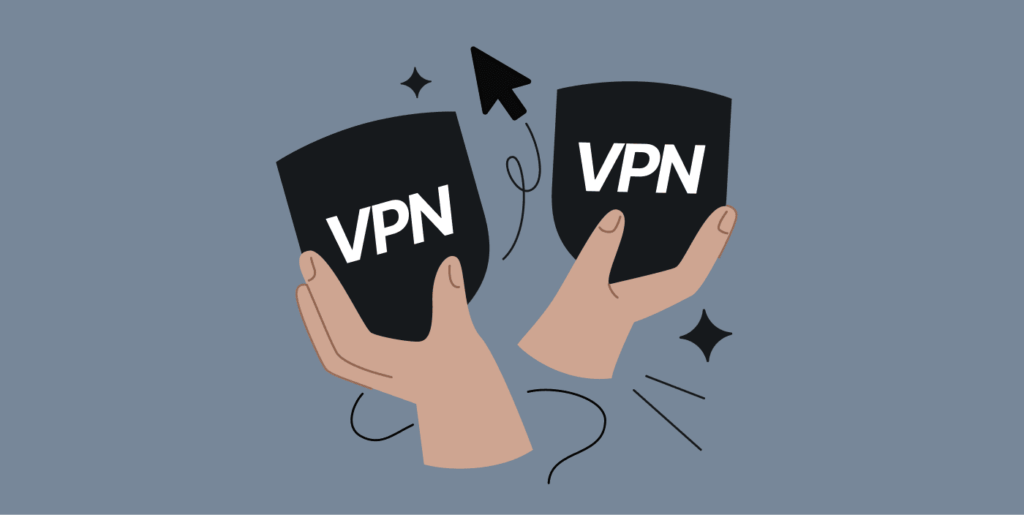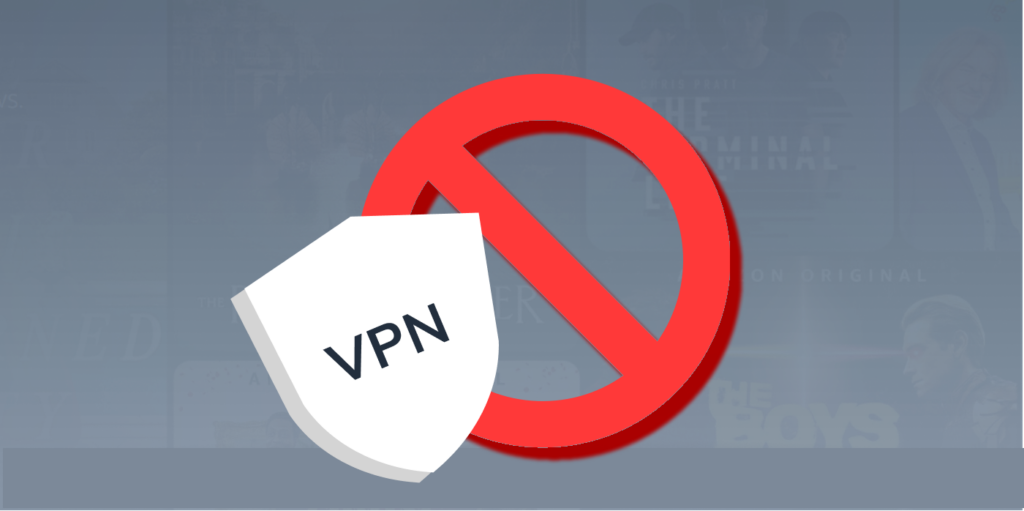VPNs (Virtual Private Networks) have recently gained rapid adoption among internet geeks. As per a survey, about 25% of internet users today use VPN services to improve online privacy.
No matter why you use a VPN service, you may still struggle to access certain websites or streaming platforms. Various renowned platforms do not appreciate VPN usage and block VPN users from entering their networks. On the other hand, turning VPNs off to access such platforms makes your privacy and security vulnerable to unwanted misfortunes.
So, what’s the workaround? After reading this blog, you’ll learn why a VPN gets blocked and the methods you can implement to bypass such restrictions without compromising your privacy and anonymity.
6 Effective Ways to Circumvent VPN Blocks

Here are the most effective methods a user can use to defeat VPN blocks.
1. Relocate Your IP Address
Several websites prevent VPN users’ entries to their platform by detecting and blocking IP addresses from a certain list they detect as virtual IPs over time. To navigate through such blocks, change your IP address by selecting another VPN server. Premium VPN providers like ExtremeVPN provide you with many server options globally, increasing your chances of accessing any website anonymously, irrespective of how effective their VPN block protocols are.
2. Use Obfuscated Servers
Another way to bypass online platforms’ VPN block is to use an obfuscated server. Obfuscated servers provide users an extra layer of privacy and security by making traffic that passes through them more complex and undetectable to websites. Such specialized servers usually work through communication ports, just like important services like email providers, which require quite a lot of hard work to block.
Using obfuscated servers particularly helps if you are a resident or visiting countries like China, Russia, North Korea, etc., whose authorities severely limit their residents from accessing certain online forums. When you connect with ExtremeVPN, all of its obfuscation-integrated servers make your traffic appear as if it is coming through the regular HTTPS port, making it harder to detect and block in regions even with strong internet censorship.
3. Change Your VPN Port
A reputable VPN like ExtremeVPN facilitates its customers with multiple security protocols, enabling them to set up secure connections while routing their data through an encrypted tunnel. ExtremeVPN subscribers can benefit from any of the following protocols:
- Open VPN: This VPN protocol comprises UDP and TCP ports to create a site-to-site or point-to-point connection. UDP ports ensure seamless data speed to prevent any lag, while TCP ports make sure that your files transfer as it is without any data loss.
- IKEv2: Internet Key Exchange version 2 or IKEv2 manages request and response queries. It facilitates a secure direct communication channel between networks while being responsible for the SA (security association) attribute.
- IPSec: The IPSec protocol ensures a secure, encrypted tunnel between devices over the web. In collaboration with IKEv2, IPSec is responsible for safe data transmission online.
- WireGuard: It is a highly advanced protocol that prevents users’ data from getting exposed, fights against break-ins, and improves connection stability. It is the fastest VPN protocol available today.
It depends on the websites’ tactics to block VPN traffic, but switching between the above-mentioned protocols can help you bypass blocks. Moreover, it is also crucial that you choose a port that a given protocol provides to manage tunneled traffic.
For instance, ports 80 and 443 aren’t commonly referred to as VPN protocols, while port 1194, supplied by the OpenVPN protocol, is famously known as the VPN port. In such scenarios, ports 80 and 443 should be the ones you choose as they are less likely to be detected as coming from a VPN.
4. Switch to Mobile Data
To overcome the VPN block issues at your school or workplace, you can use mobile data instead of their networks as a remedy via hotspots.
This way, you will surf online without using your school or company network, increasing flexibility in accessing your desired platforms freely without worrying about VPN detection. Remember that many streaming platforms consume intensive data, so make sure you subscribe to a more suitable data plan.
5. Use an Alternative Tunnel
Another method to side-step VPN blocks is to change the tunnel that transmits your traffic. Most commonly, you come across two types of tunnels: SSL/TLS tunneling and SSH encryption.
- SSL/TLS tunneling, also called Secure Sockets Layer, is usually adopted by HTTPS protocols to keep unpermitted break-ins to your data at bay during transit. This additional layer helps mask your VPN use while making it undetectable.
- SSH encryption enhances the protection of your online traffic and makes it less likely to be detected by forums employing VPN blocks. It achieves this with the help of another device, which is responsible for transferring your data to a remote VPN server after it receives it from your device. However, this method will likely impact your connection speed.
6. Change Your DNS Configuration
Another way to bypass VPN blocks is by changing your DNS configuration. You have multiple DNS providers online, like Cloudflare (1.1.1.1, 1.0,0,1), OpenDNS (208.67.222.222, 208.67.220.220), and Google (8.8.8.8, 8.8.4.4).
Remember, changing your DNS also helps when you fail to connect with a VPN because of your ISP blocks, but it also allows you to access websites that impose blocks at the DNS level. Having said that, you need to understand that changing the DNS setting will enable you to bypass the website blocks, but it doesn’t provide online safety and security.
Why Do VPNs Get Blocked?
Many online platforms employ strong VPN detection tools to detect entrants using VPN services and deny them access. You must be wondering why. Here are a few of the common reasons they do this.
Content Restrictions
Various countries’ authorities restrict certain platforms, such as social media forums, human rights sites, messengers, unbiased news channels, and more, from working inside their territory.
As per a report on internet freedom in 2025, about 40% of the surveyed countries saw increased internet censorship in their regions. Countries such as China, Russia, Afghanistan, Tibet, Turkey, Ethiopia, Myanmar, etc, regulate the usage of VPNs, while many have even banned their mere usage inside their regions.
Copyright Agreements
Various renowned streaming platforms, like Netflix, YouTube, HBO Max, and more, implement geo-restrictions on their content to meet the licensing agreements with their content-providing partners. The same is true with many sporting events, such as NBA league games, MLB, UEFA Champions League, etc.
As a result, many of your desired movies, shows, or live sporting broadcasts accessible in your region may or may not be available in other parts of the world. For instance, popular Netflix series like The Office, Friends, Rick and Morty, etc., are inaccessible to US residents.
Educational and Organizational Censorship
Many educational companies worldwide prohibit certain websites’ accessibility on their network to keep their students and employees from getting distracted, so that they can improve their productivity.
They also impose certain VPN blocks to prevent their employees and students from utilizing a VPN on their premises. As a result, they can’t access VPNs to side-step the blockage on particular websites during school and working hours.
Avoid Identity Fraud and Illegal Activities
Various banks and financial institutions globally block VPN users’ access to their platforms. They do this to avoid potential fraud during the transactional process. As VPNs help hide your IP address, cybercriminals mask their IP while conducting illegal activities. Banks and financial entities enforce an identity verification process for all incoming traffic to prevent such malicious actors from entering their networks. So, if you are trying to access your banking site or app using a VPN, you won’t be able to do it.
To circumvent such frustrating scenarios, you can utilize ExtremeVPN’s split-tunneling feature to decide which part of your data can route through the newly created encrypted tunnel. On the other hand, data comprising your sensitive identity information passes through your local network. In doing so, you can protect your identity while conducting transactions hassle-free on services like PayPal, Venmo, etc.
Moreover, it’s worth mentioning that in a few countries, platforms that employ VPN detection tools, such as casinos and sports betting forums, have either partly or completely banned content on their platform. Nevertheless, you can still gamble using a VPN in many regions worldwide.
Types of VPN Blocks

Several popular web forums and streaming sites employ strong VPN block techniques. However, there are various platforms where you can use simple means, like switching your mobile network or servers to others, to go around their VPN traffic blockage. Still, multiple renowned platforms require you to carry out a more advanced process to defeat their VPN blockers.
The following are certain types of VPN blocks that a user may encounter:
1. IP Blocks
Various websites use this technique to block VPN users on their platforms. They achieve this by blocking a certain set of IP addresses that they identify as originating from VPN servers.
Sometimes, when they detect multiple devices have accessed their platforms using the same IP address, indicating that it is coming from a VPN server, they put that IP address on their blacklist. As a result, when you try to access that particular website again using the same address, you won’t get access to it. A way around this could be to switch to a different VPN server.
2. Blocking VPN Ports
Another commonly used approach that websites use to prevent VPN users’ entry is blocking their VPN ports. A VPN port allows users’ traffic coming through the newly created tunnel to pass through the VPN servers. Websites that don’t want to allow incoming traffic using a VPN can block such ports by setting up a firewall.
Users must use a premium VPN service like ExtremeVPN to pass through such barriers. ExtremeVPN allows users to switch between different ports swiftly by facilitating multiple protocols on its servers, like OpenVPN, WireGuard, and IKEv2/IPSec.
3. Deep Packet Inspection (DPI)
DPI, Deep Packet Inspection, is a more advanced and sophisticated approach adopted by various websites to deny VPN users entrance. It blocks VPN users from accessing their platform by analyzing their metadata passing through the VPN servers.
Countries that strictly regulate internet usage, like China, Russia, North Korea, Iraq, Belarus, UAE, etc., use the DPI technique to prevent their residents from accessing particular online platforms. VPN services employing more than a few security protocols can be key for users to defeat such barriers.
Does Your VPN Often Get Blocked? – Try ExtremeVPN for Reliable Privacy and Security

No doubt, VPN blocks can frustrate you a lot while accessing your favorite content online. On the contrary, when you try to access it without a VPN, your data becomes extremely vulnerable to online attacks. It’s wise to use one of the methods we just mentioned to cope with such irritating and dangerous scenarios. This way, you can access your desired content anonymously and ensure data safety against cyber-attacks.
Moreover, to get a permanent solution for your VPN block, you need a top-rated VPN service. ExtremeVPN provides top-class security and encryption protocols to its users. With its subscription, you have 6500+ server options across 78 countries globally. We employ a strong set of military-grade security protocols with AES-256 data encryption that helps you bypass any VPN blocks, no matter how strong they are.